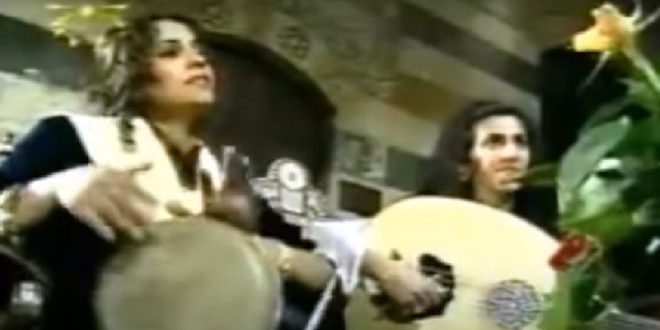Folk singing is part of the oral history that documents the social life in every society and presents its traditions and customs. An example of this kind of singing is the Damascene folk singing that highlights the Damascenes’ traditions and customs.
According to Syrian music researcher Ahmed Boubes, folk songs have expressed many aspects of Damascene social life and traditions that were linked to each other but were varied according to the purposes and occasions. These songs were distinguished by the simplicity of melody and words, which made it easy for people to remember, especially for Damascene women who used to perform such songs at evenings, picnics and social events.
Boubes said that all the Damascene songs came in the form of the Taqtuqa (a standard 3-4 minute Arabic song with multiple verses and a repeating chorus) and one musical Maqam (oriental tune). Most of the time, singing is accompanied by playing the oud and tambourine, and darbuka.
Engagement and wedding occasions in Damascus have special traditions as far as singing is concerned.
“When a girl is engaged, women usually sing traditional songs such as “Tal’a min beit Abuha”, which has an Iraqi version that is different in its introduction from the Damascene one, “ Boubes said, noting that “the Damascene version has a faster and happier melody while the Iraqi one has a sad touch.”
The music researcher Boubes also said that there are many folk songs which are connected to preparations for engagements and weddings in Damascus.
The Damascenes also love picnics. Special songs were inspired by such social events in which picnickers sing while preparing their food or playing card games.
As for the songs of the women’s meetings, the Damascene women used to organize a meeting at the house of one of the friends during the afternoon in which singing as well as playing Oud and darbuka are the main items, Boubes said. Songs like Yaadameh Maghabara, Daaet al-Buni and Bein al-Janayen were among the most famous songs dedicated for women evenings.
Folk singing in Damascus suits all occasions and sometimes include a sense of humor.
However, Boubes said that the Damascene heritage has also been open to all societies in the Levant, so there is a kind of interaction between the countries of the Levant in terms of singing. Songs like “Bielbaalek Shakel Almas,” “Ah Ya Asmar Elloun” and “Rummanak Ya Habibi” were among the most famous songs that were sung in Syria, Palestine and Lebanon.
Hamda Mustafa

